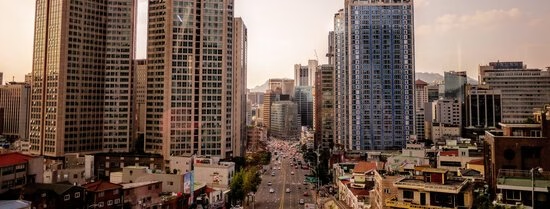“Take digital literacy, for example, where Rotterdam’s dynamics are similar to those in the megacities of Asia or Africa. In fact, we can learn a lot from cities in those parts of the world. Kiosks throughout the Kenyan capital of Nairobi were already selling internet dongles ten years ago. You simply plug these into your laptop for internet access throughout the city. In Europe, innovations like these are often held back by the bureaucracy of our existing systems.”
A considerable part of Van Eerd’s work focuses on the resettlement of urban dwellers throughout the world. She examines the role of governments in this respect and tries to identify the problems that arise when whole neighbourhoods have to be razed for property development or due to the risk of flooding, for example.

Since her PhD research, she has been following developments in this field in the South Indian metropolis of Chennai, among other places: “When you look at exactly how resettlement of urban dwellers works, firstly, you see a world of difference between forced evictions under corrupt regimes and what is happening in a city like Chennai. There, although the government has good intentions, the people affected are not listened to.”
Lack of information
A key issue that comes up repeatedly in her research is how problematic the lack of information is for urban dwellers who are forced to relocate. “The authorities in Chennai provide free housing to the urban poor, thinking that’s enough. There isn’t any proper consultation with local communities,” Van Eerd explains. “Often these people aren’t against resettlement at all. The problem is that, due to the lack of information, they have no idea whether there will be any jobs in their new place of residence or whether there is a bus stop nearby. For example, local officials forget to properly research the skills of the people who have to move to other parts of the city. In short, it’s about the lack of employment, which hits women harder than men, and the general lack of all kinds of facilities in a new place of residence.”
"People in different cities - such as Manila, Jakarta and Chennai - can learn a lot from each other, so exchanging information is very important"
Maartje van Eerd
Community development
Funded partly by the university partnership LDE (Leiden-Delft-Erasmus Universities), Van Eerd is currently conducting research on the accessibility of information for the poor of Chennai. At the end of October, she will be part of an LDE delegation travelling to the Indonesian capital of Jakarta to participate in the LDE-BRIN Academy. She will then continue directly on to Chennai.
“The Indonesian approach is very different to the Indian approach when it comes to issues like this. In Jakarta, for example, housing projects include a lot of investment in community development,” Van Eerd explains. “And in Manila you see that residents who have to leave an area due to the risk of flooding are given much more responsibility themselves. People are given access to financial resources and are then allowed to negotiate with local authorities for a plot of land on which new houses are built under the management of local women’s groups. This is because the Philippines has strong local communities in which women play an important role. This is much less common in India because the cultural context is very different. Yet people in these diverse cities can learn a lot from each other, and this makes being able to exchange information so important.”
Western perspective
Van Eerd stresses that as a scientist, she is careful to avoid approaching problems from a Western perspective: “We are working with the Indian government, for example. They invited us because of the expertise we have as a university. But, of course, we Europeans don’t know exactly how it should be done either. Therefore, we work closely with local people who understand the context and what exactly is going on in such a city. In a globalised world, we all have to learn to deal with problems together.”

